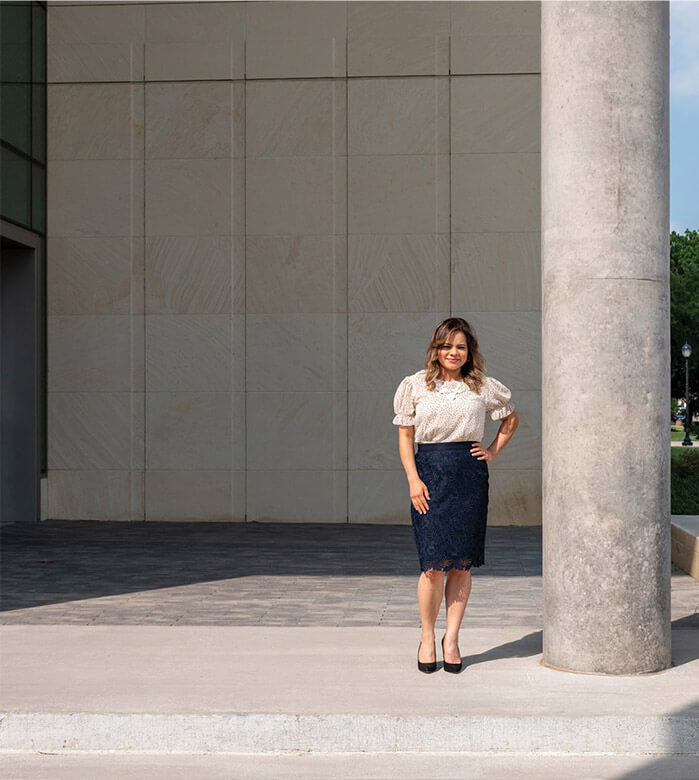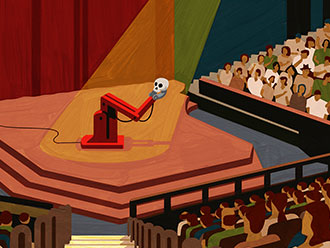Kevin Bach
’17 BFA, Theatre Performance
Actor
Kevin Bach used to lie to his parents, saying he was studying at the library when in fact he was rehearsing for local plays.
“I didn’t want them to know, but a mom always knows when her kid is lying,” says Bach. “My parents had always hoped that this acting thing would be just a hobby for me.”
His parents were not alone in their skepticism. Images of artists hustling, trying to find work, and worrying about where their next paycheck will come from are common. This was especially true for Bach’s parents, who cringed at the idea of their son moving to Los Angeles at age 18 to become an actor without a degree.
“They said, ‘At least get a degree first before you go,’ to which I replied, ‘Only if you let me major in theater,’” he says. “The entertainment industry is one of the most competitive fields out there, but I feel like I’m living my dream. I get to collaborate with other actors to tell a story. It doesn’t get any better than that. Eventually my parents have come to terms with my passion and career, and I am so incredibly grateful for their support.”
Bach, who has acting credits on the TV shows Blue Bloods and Gotham as well as roles in several short films, is also grateful for support he received from his dedicated professors throughout his time at UTA. He says they introduced him to real-world practice from his first day of classes in his freshman year.
“Our programs emulate industry practice and aesthetics,” says Ann Healy, theatre arts associate professor. “Students interact with professionals working in the industry as well as participate in masterclasses, workshops, and internships. A liberal arts education helps students develop a strong sense of responsibility and transferable practical skills, such as communication and analytical problem-solving abilities.”
The program’s production company, Maverick Theatre Company, immerses students in theatrical production work alongside classes in dramatic literature, theater history, and playwriting. Students gain hands-on experience in all aspects of theater and have opportunities to direct, stage manage, and design and perform on stage.
Bach says attending UT Arlington gave him a strong foundation in his craft.
“My degree has given me a leg up on my competition,” he says. “Getting to hear insights from UTA faculty members and their experiences about being in L.A. and New York really prepared me for a career once I graduated. They had so much knowledge to share with me. I couldn’t help but to be a sponge and absorb as much as I could.”





